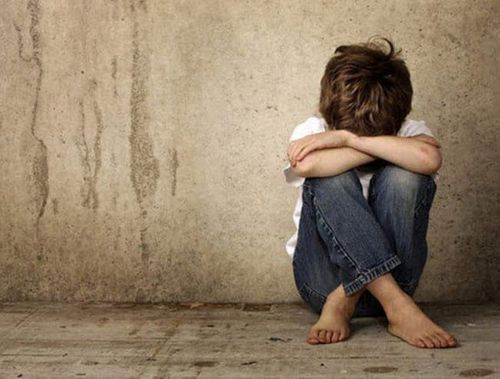This is an automatically translated article.
The article was consulted with - Doctor Le Thu Phuong - Pediatrician - Neonatologist - Department of Pediatrics - Neonatology - Vinmec Hai Phong International General Hospital.Children under 3 years old still can't really distinguish between reality and fantasy, so they don't understand the concept of lying and telling the truth. But with kids 3 to 4 years old and up, they can tell what's real and what's fiction, and they know when they're lying.
1. Why do children lie?
Children under the age of 3 still cannot really distinguish between reality and fantasy. That means a 1- or 2-year-old cannot understand the concept of lying and telling the truth. The times a child lies can be traced back to:Active imagination: a child's creativity is developing to the point where he may sometimes think that what he believes is true. Children say there are fish swimming in their bathtub, or a princess is under their bed. Amnesia: How can a hyperactive 2-year-old remember who actually got the first doll? He just knows he wants it now. And when you scold your child for the crayon marks on the wall and he says he didn't do it, he's not lying, he simply forgets he did it. Or fervently wishing that he didn't, he convinces himself he didn't. . Angel Syndrome: A child who realizes that his or her parents think he can't do anything wrong, begins to believe in it: "We love you because you're a good kid. A good kid won't do it. I poured my milk like that. I didn't spill the milk." Children 3 - 4 years old and up can distinguish between fact and fiction, so they know if they are lying or telling the truth. At this time, the child may lie for a number of reasons:
The child feels guilty: Being under a lot of pressure can cause the child to lie. Often, when a child is raised in a loving and responsible home, he or she will first lie when faced with having done something wrong and feel afraid it will hurt the parent. disappointed or punished by them. Already feeling guilty, children will try to protect themselves from what they think will be harsh discipline. In many cases, parents of children who lie have unusually high standards of behavior and expectations. These kids know right from wrong and they see it as a difficult situation, trying to save face for themselves and their families.
Children sometimes lie when they are under considerable stress to meet impossible demands. So young people who are struggling at school and can't keep up with their studies may feel overwhelmed and lie about having finished all their homework. In cases like these, the lying must be explained in relation to surrounding facts.
Children lie on purpose: Remember, lying shows that children are aware that they did something wrong. By trying to protect themselves from parental frustration and disapproval, children are demonstrating that their conscience is working. Parents who overreact and become extremely negative can put their kids in a situation where they feel that they need to lie over and over again to protect themselves. Due to the environment: Children can also become confused in a nursery where lies are forbidden but the parents of the children sometimes lie, distorting the truth for their convenience. This sends confusing signals to a child who is always told to be honest, witnessing a parent lying on the phone or to equal neighbors. Children often have difficulty distinguishing wisely between situations like these.

2. What should parents do when their children lie?
You don't want to encourage lies, but the best way to handle this stage is to relax and enjoy the children's fairy tales. Delusional fantasies are generally harmless and part of normal 2-year-old development. Read fairy tales to your child. Why shouldn't children provide some of their own stories?Renowned pediatrician T. Berry Brazelton says: pretending young imaginary characters are like friends is normal and signals a child's well-developed imagination. Even if a child blames his "friend" for a misbehavior, there's nothing to worry about. From an emotional standpoint, these imaginary friends will serve an important purpose: "They provide a child with a safe way to figure out who he wants to be."
While it's not worth punishing a 2-year-old when he's fabricating the truth, you can gently nurture his or her honest instincts in ways that make sense at this age. Here are some strategies for cultivating honesty in children:
Encourage telling the truth. Instead of getting angry at your child's misbehavior, thank your child for telling you about it. If you yell, your child won't feel that honesty is right and rewarded. Don't accuse your child: when you know your child has done something wrong, instead of accusing them, find ways to encourage them to correct their mistakes. For example, when you see your child throw crayons on the living room carpet, you might say something like this: "I wonder how the crayons ended up all over the living room carpet? I wish someone will help me pick them up." Don't overwhelm your child. Don't burden your child with too many expectations or rules. Your child won't understand or can't keep up with your expectations, and he or she may feel compelled to lie to avoid disappointing you. Build your child's trust: Let your child know that you trust him or her and that he can be trusted. Nothing is more important than being honest, this is the best method to cultivate honesty in children. A parent's job is to be a child's role model of trust. With this in mind, try to avoid telling half-truths. For example, when it's time to get a shot, don't tell your child it won't hurt. Try to keep promises with your child, and when you can't keep them, apologize for breaking them.
And best of all, praise them whenever they tell the truth. Especially when children admit to the wrong things they have done. Positive reinforcement works wonders in making children feel that it is worthwhile to keep telling the truth.

Please dial HOTLINE for more information or register for an appointment HERE. Download MyVinmec app to make appointments faster and to manage your bookings easily.
References: babycenter.com, healthychildren.org, aacap.org













